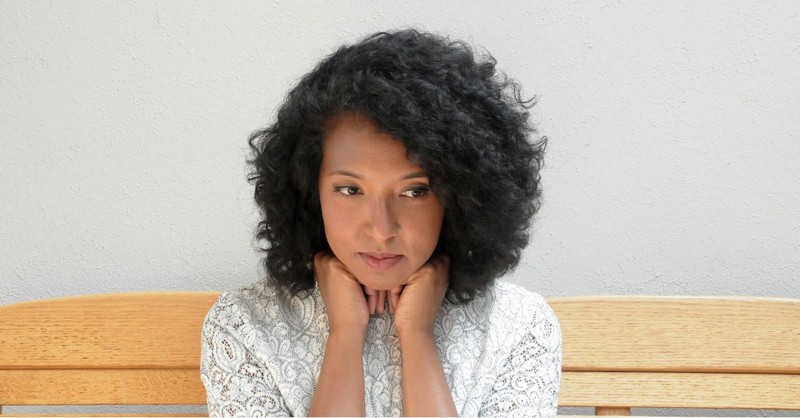
When I was married, and my children were little, our church’s children’s pastor moved from Michigan to Canada with her husband and children. We loved her and immediately missed her encouraging character. In her absence, the church hired a slightly less energetic single mother to fill the position. I didn't gossip or ask around about her marital situation, but honestly, I judged her for her singleness. I have no idea if she was divorced or never married, but I assumed, at the time, her marital status disqualified her for the position as pastor.
I know, what a hypocrite I was! Now, 10 years later, I’m a divorced mother with one teenaged son, just like she was at the time. And I know what it's like to be unfairly judged by other people in the Church, as a divorced woman who's just trying handle the circumstances that I’ve been given. Lesson learned, don't unfairly judge people's circumstances, because that could be you someday. Don’t assume someone has sinned just because they are a single mother.
I was doing everything right to protect my marriage and be the best Christian I could be. Although we had our behind-closed-door-troubles, I assumed my spouse and I would retire someplace warm and grow old together. But that would not be the case, as infidelity would cause irreparable damage.
If any good can come out of my own bad experiences, I’ve learned that not everyone will understand your life’s journey. And I might misunderstand someone else’s life because we can only see things through our own eyes. We can choose compassion and empathy or we can choose, like I did, to not see past my own nose.
Here are a few reasons why your Christian community might struggle to accept your divorce, and how you can work toward healing anyway.

Sometimes, people struggle to accept what they’ve never experienced.
It makes sense to me now after seeing it time and time again since my divorce. A pastor's wife told me that my situation was "just an inconvenience" while others pointed me to the Sermon on the Mount (saying I should feel blessed) when I cried uncontrollably in church. I had not even started on a healing path. I was emotionally bleeding all over the place and no one seemed to understand why.
When people have never experienced life without a loving family support system, they can struggle to see any other way. When someone has never lived in an abusive home, they might not understand why someone who has would “give up” on their marriage and seek a divorce. And sometimes they don’t understand that real evil can exist in a marriage, simply minimizing it to “marital conflict” or worse, they blame the victim.
Image Credit: ©Thinkstock/Janet-Rhodes

Sometimes, people can’t accept the particular suffering of divorce because they compare it to other sufferings.
People who cannot relate from their own experiences might devalue someone else’s experience by comparing it to other heartbreaking losses like losing a child, experiencing cancer, or living through a natural disaster. They might see your suffering as a choice and compare or judge harshly.
I had to learn that emotionally healthy people don't compare. We all can learn to accept each other’s unique set of circumstances. We all suffer, and all suffering looks different.
But, we also need to be okay when people misunderstand us or cannot relate. Maybe someday they’ll experience something that will change their mind about what they believe, but until then, trying to convince them to see something they cannot is a waste of time.
Image Credit: ©Thinkstock/demaerre

Sometimes, friends and family don’t want to see you in pain and want you to move on quickly to relieve their own discomfort.
The people in your life who love you or who understand from experience, yet have already worked through their pain much faster than you have, may not want to see you in pain any longer than you need to be. It’s not that they don’t care. Often times they care so much that it hurts them to see you hurting so they want to elevate the pain for you. They may say “just move on” hoping that will heal you and stop your hurt.
But most experts and therapists know that you need to go through the pain and process every single part of it before you can fully heal. In this case, just thank the person for their care and concern. Then let them know that you need to walk through this pain instead of trying to escape, numb or pretend it’s not there. You will get through this, just in your own (and God’s) time.
Image Credit: ©Thinkstock

What to remember when people try to make you feel guilty:
The first year after my divorce I felt the people at my home church were trying to make me feel guilty for giving up and losing hope after I stopped praying for marriage restoration. They said they didn’t want me to live in sin as a divorced woman. This was their issue with divorce, not anything I was doing. I had not sinned. Personally, I had decided to devote my immediate future to healing my children and myself, while ministering to other divorced women – or at least working toward that goal.
The church had not lived in my marriage. Instead, I just said that I knew God had released me from my marriage for bigger purposes, which I didn’t even know at the time, and I was not going back. Any thoughts or beliefs that they had about my choices or decisions I left with them.
Image Credit: ©Thinkstock/XiXinXing

Those going through divorce need empathy, sympathy, and compassion.
According to Psychology Today, here are the unique differences between the three: “Sympathy (‘community of feeling’), unlike empathy, does not involve a shared perspective or shared emotions, and while the facial expressions of sympathy do convey caring and concern, they do not convey shared distress… Compassion (‘suffering with’) is more engaged than simple empathy, and is associated with an active desire to alleviate the suffering.”
Empathy is both seeing and experiencing the pain that someone else is experiencing. Often times seeing someone in pain, when they’re suffering, we’re able to bring up these same feelings in ourselves through connecting with our own past experiences. We find a connection between the two and our heart breaks with them.
We can empathize with someone, even if we've never experienced that same situation by relating it a pain that we have been through. I can have empathy for someone who has lost a pet even though I'm not a furry animal lover (it’s all the hair). And I can have compassion for the homeless, donating and sharing my food, not knowing what that struggle feels like either. I’ve experienced loss, so I can connect that pain with someone who is experiencing a loss of any kind. I’ve experienced many deaths in my family, so I feel the pain of others who have lost family.
After a divorce, we may want one or the other but what we really need is all three – empathy, sympathy, and compassion. This happens when we can connect with someone who knows exactly what we’re going through; someone who’s been there. We can feel short changed and misunderstood when we only receive someone’s sympathy, their mere concern, or compassion without empathy (someone trying to fix our pain problem without feeling our pain).

So what can you say when people ask questions you’re not ready for?
One proactive thing you can do is keep your inner circle to a small, supportive, empathetic and compassionate group. This will often offer much protection from explaining yourself to everyone. And then, save all the gory details for therapy or your divorce support group (like Divorce Care).
When someone asks you a question you’re not ready to answer, keep it short, simple and kind: “I’m just not ready to share that information right now but when I am, I will let you know. Thanks for your understanding.”
Image Credit: ©Thinkstock

Don’t let someone else’s judgment or lack of understanding determine your healing journey.
Lastly, we don’t realize how much all of this lack of acceptance and invasive questioning can cause us to second guess how we’re doing and how to approach healing on this divorce journey. We might even find ourselves withdrawing into depression or comparing our length of healing or severity to someone else. Remember, that’s not healthy.
If we want to see healing and get emotionally healthy, we need to allow people to think what they’re going to think, misunderstand or judge our situation if they choose to, and not respond in a way that causes us more pain. Divorce happens, and unless someone has been through it personally, they just cannot relate. And that’s okay. There are people out there who do, and they will walk with you through your pain and time of healing.
Jen Grice is a Christian Divorce Mentor and Empowerment Coach, author of the book, You Can Survive Divorce: Hope, Healing, and Encouragement for Your Journey, a speaker, and a single homeschooling mom. She writes full-time at JenGrice.com and empowers women to survive and heal after their unwanted divorce on her YouTube channel as well. Jen believes that through God's healing, grace, and redemption that all Christian women can survive... and even thrive, after divorce. Navigating this foreign territory we call divorce? Feeling alone? Start here!
Image Credit: ©Thinkstock/alex-sorto
Originally published Wednesday, 16 January 2019.









